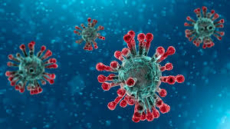 If you are sick with COVID-19 or suspect you are infected with the virus that causes COVID-19, follow the steps below to help prevent the disease from spreading to people in your home and community. This information comes directly from the Center for Disease Control.
If you are sick with COVID-19 or suspect you are infected with the virus that causes COVID-19, follow the steps below to help prevent the disease from spreading to people in your home and community. This information comes directly from the Center for Disease Control.
Take a COVID Test: Test kits are readily available at most all pharmacies and on-line from the government. If you test positive and are at-risk, contact your family physician and/or nearby pharmacy and get a prescription for an anti-viral treatment, such as Paxlovid.
Call your doctor: If you think you have been exposed to COVID-19 and develop a serious fever1 and have difficulty breathing, call your healthcare provider immediately. It is important that you call the healthcare provider and tell them that you have or may have COVID-19. This will help the healthcare provider’s office take steps to keep other people from getting infected or exposed.
For more information about the coronavirus itself, we recommend some of the following very credible authorities:

